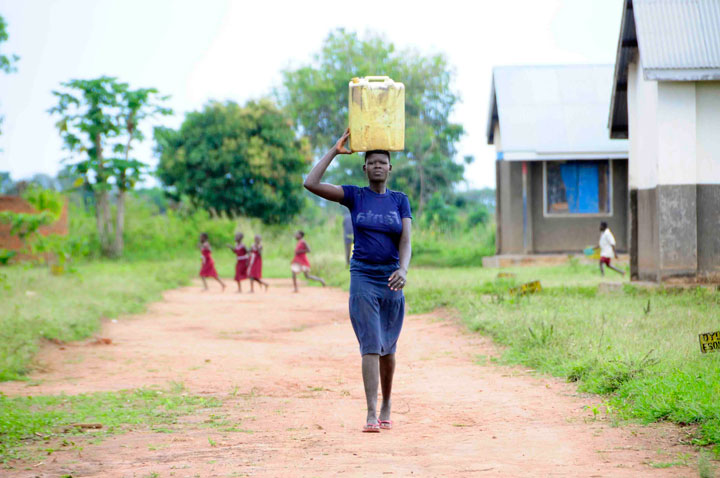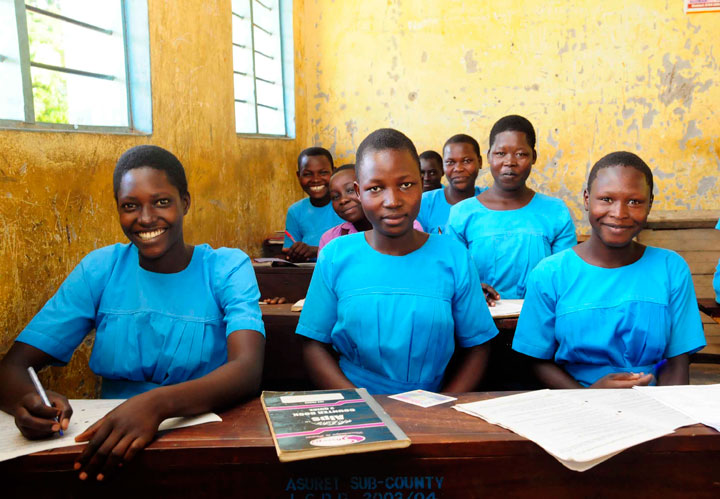
Water, sanitation, and education are all closely related to gender.
Although education is valued in East Africa, boys’ education is prioritized. Girls are often tasked with fetching water while their brothers go to school. DROP’s director and founder, Stacey Travis, saw that girls everywhere were desperate to go to school and knew we had to find ways to support girls’ attendance at school.
According to the UN, a 15-year-old girl in South Sudan has a higher chance of dying during childbirth than finishing high school. In response to statistics like this, Drop In The Bucket has been creating programs to help girls stay in school through water and sanitation at schools, menstrual hygiene management, economic empowerment through scholarships, workshops and mentoring programs.
We knew that girls dropped out at much higher rates once they hit puberty. Without effective mechanisms to handle menstruation, they missed a week of school per month, fell behind, and eventually dropped out. We hired a seamstress, bought sewing machines and designed a washable menstrual hygiene pad that students could make in school. The pads are reusable, easy to make, and the basis for women-owned small businesses. By sewing pads and selling them at local markets, mothers were able to not just keep their girls from missing school each month, but also make money for school fees and family expenses.

Drop in the Bucket is establishing a scholarship and mentoring program for South Sudanese girls. Our goals with this program include providing funding for school fees and giving professional women mentors the opportunity to visit schools and give presentations about their lives and career choices. With this program, we not only want to empower girls to see the opportunities that surround them, but also to give more girls easier access to education.
The combination of Girls’ Clubs coupled with a clean water well often results in the school enrollment doubling or even tripling. Our goal is to increase the number of girls in school, because how can communities move themselves out of poverty when only half of the people are getting educated?
“The world will never realize 100 per cent of its goals if 50 percent of its people cannot realize their full potential. When we unleash the power of women, we can secure the future for all.” UN secretary-general Ban Ki-moon
